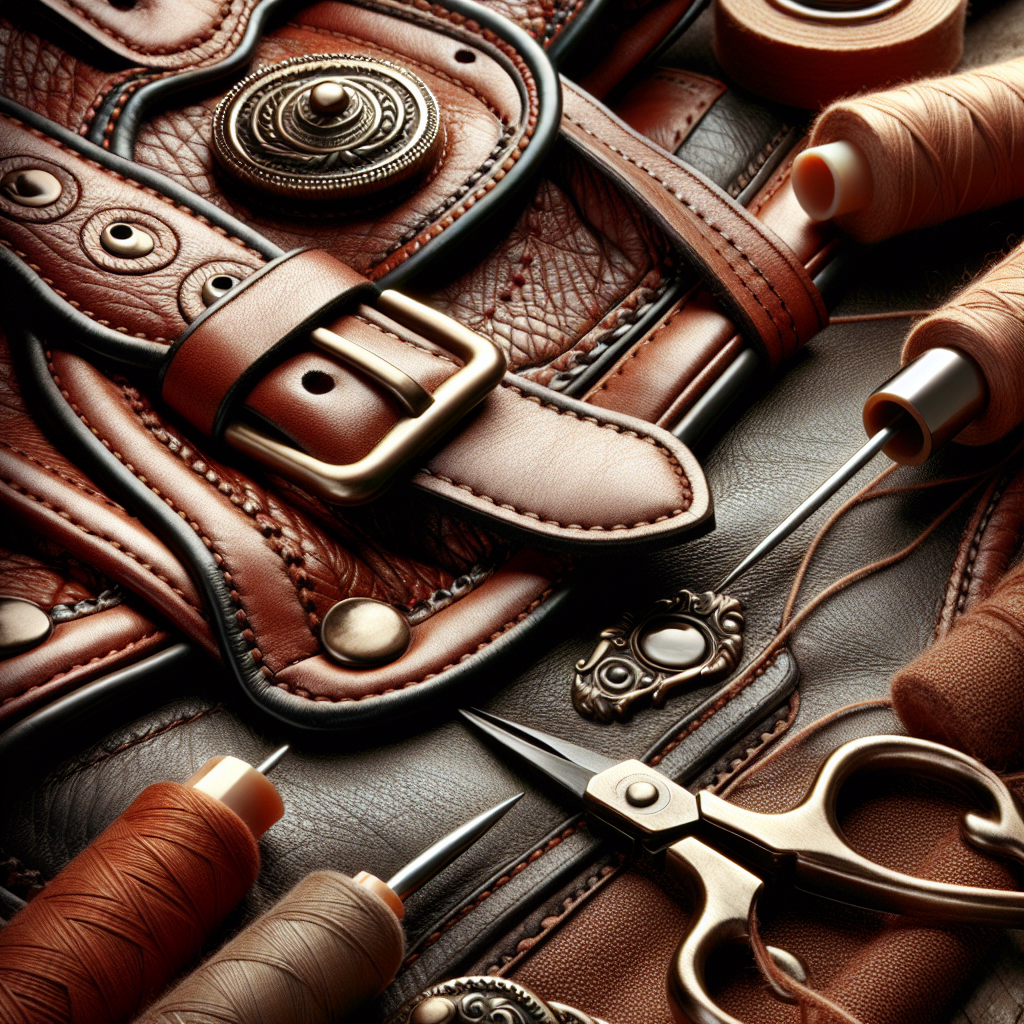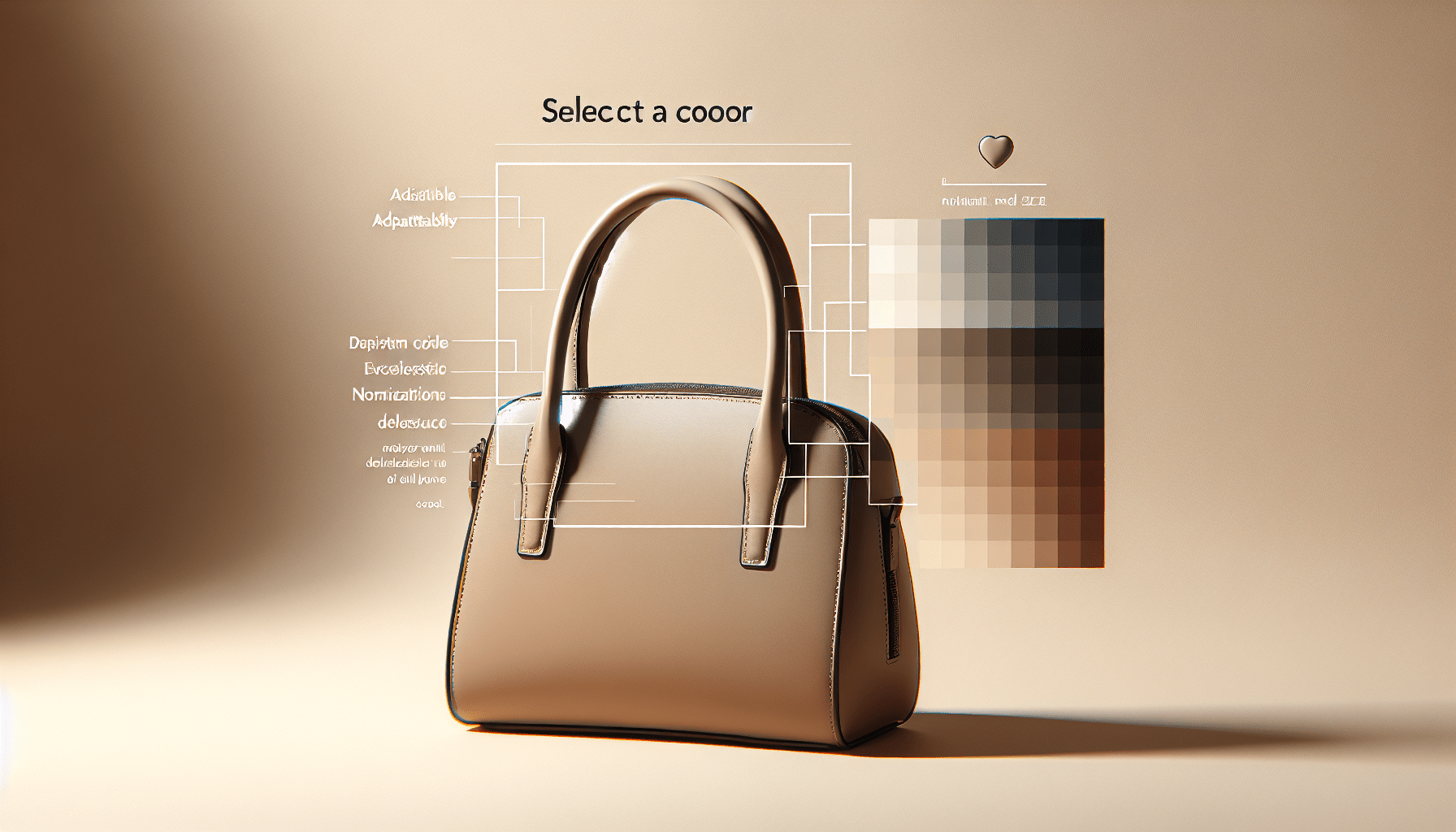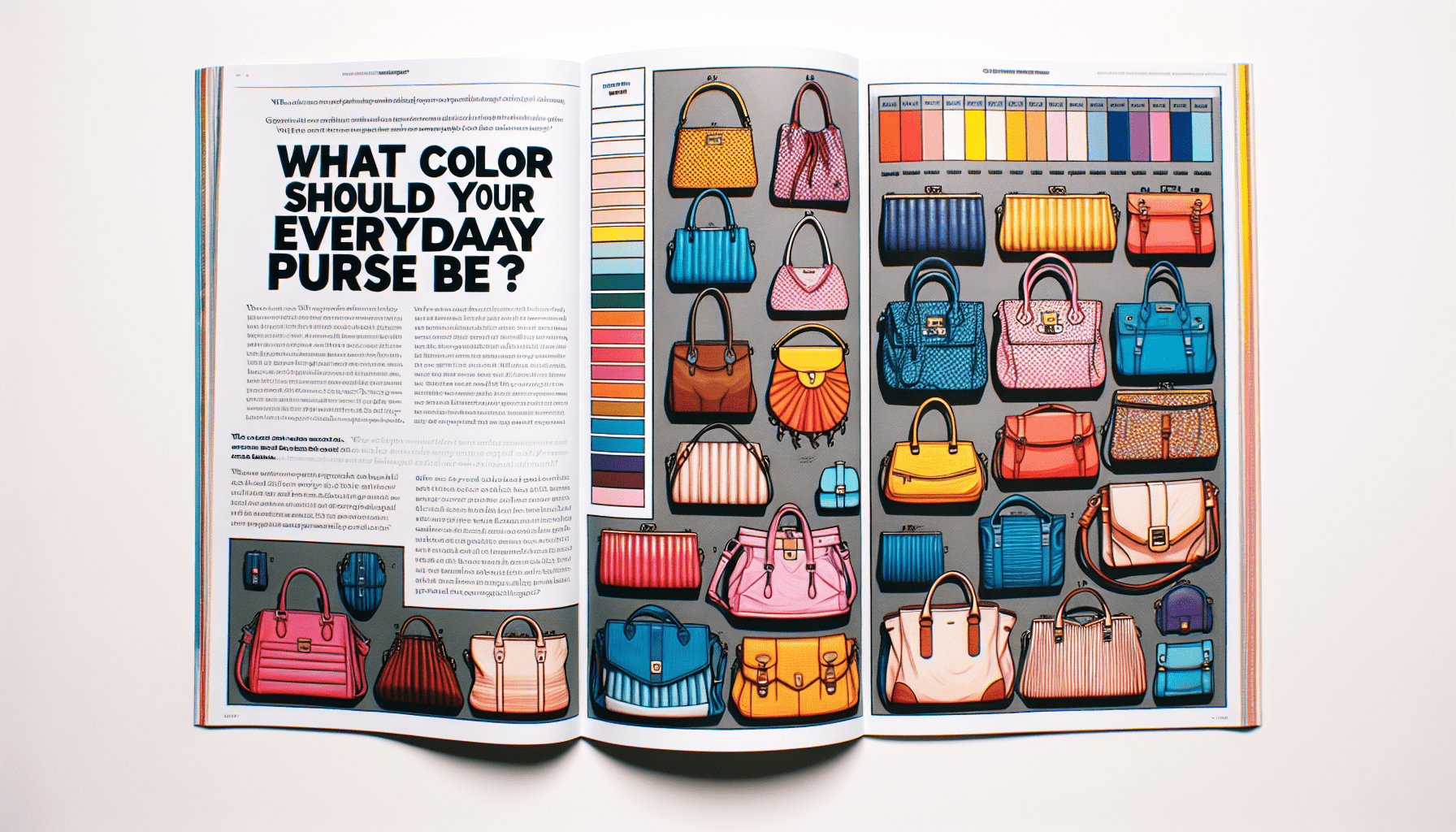How Important Is Brand When Choosing A Handbag
When it comes to choosing a handbag, the brand can make all the difference. Not only does it serve as a status symbol, but it can also reflect your personal style and taste. Whether you opt for a luxury designer brand or a more affordable yet stylish option, the brand you choose ultimately defines the image you want to project to the world. Today, we will explore just how crucial brand is when it comes to selecting your perfect handbag and why it should be a key consideration in your decision-making process.
The Perception of Brands
Perceived value of top brands
When choosing a handbag, the brand plays a crucial role in determining its perceived value. Top brands are often associated with quality, prestige, and luxury. Customers are willing to invest in these brands as they believe they are getting a product that is worth its price tag. The perception of value is not only based on the physical features of the handbag but also on the reputation and image that the brand has built over time.
Brand influence on customer preference
The influence of a brand on customer preference cannot be underestimated. Brand loyalty is a powerful force that drives individuals to choose one brand over others. Customers develop an emotional attachment to certain brands and often feel a sense of connection and identification with them. This connection leads to a preference for a particular brand when purchasing a handbag. The association with a well-regarded brand often enhances the customer’s perceived image and status.
Emotional attachment to brands
Handbags are not just functional accessories; they are also expressions of personal style and a means of self-expression. As a result, customers often develop emotional attachments to their favorite brands. The brand becomes a part of their identity and a reflection of their taste and preferences. Customers may feel a strong sense of loyalty and trust towards their chosen brand, making it an integral part of their lives.
Understanding Handbag Quality
Relationship between brand and quality
Brands and quality are closely intertwined when it comes to handbags. Established brands have a reputation for producing high-quality products that are built to last. These brands often invest in research, development, and sourcing premium materials to ensure that their handbags meet the highest standards. Customers have come to associate certain brands with exceptional quality, which further reinforces their preference for these brands when purchasing a handbag.
Established brands and consistent quality
One advantage of choosing an established brand is the assurance of consistent quality. These brands have built their reputation over time by delivering handbags that consistently meet or exceed customer expectations. By maintaining high standards of craftsmanship and quality control, these brands ensure that customers receive a product that is well-made and durable. The consistent quality provided by established brands gives customers peace of mind, knowing that their investment will last for years to come.
Brands’ reputation for quality
A brand’s reputation for quality is a key factor in the decision-making process when selecting a handbag. Customers often rely on word-of-mouth recommendations, online reviews, and the brand’s track record to assess the quality of a handbag. Brands that consistently deliver on their promise of quality tend to have a loyal customer base and a positive reputation in the market. Reputation acts as a reassurance for customers, making them confident in their choice of brand when it comes to handbag shopping.
Role of Brand in Style and Design
Brand-specific designs
Brands play a significant role in determining the style and design of handbags. Each brand has its unique aesthetic, which is reflected in the design choices they make. From iconic logos to signature hardware, brand-specific designs set them apart from their competitors. Customers often choose a brand based on their personal preference for a particular style or design language. The brand’s distinct identity becomes an extension of the customer’s personal style, allowing them to make a fashion statement.
Brands setting fashion trends
Top brands have a significant impact on the fashion industry as trendsetters. They have the power to shape and influence the latest fashion trends, which in turn influences the design of handbags. Customers often look to these brands for inspiration and guidance when it comes to their own personal style. By choosing a brand that sets fashion trends, customers can stay on top of the latest styles and ensure that their handbag choice aligns with current fashion sensibilities.
Brand impact on personal style
Handbags are not just accessories; they are an essential component of an individual’s personal style. Brands, therefore, have a profound impact on the personal style of customers. By selecting a brand that aligns with their preferences and values, customers can enhance their overall style quotient. The brand becomes more than just a name; it becomes a symbol of self-expression and a way to differentiate oneself from others. Choosing the right brand can help individuals project their desired image and stand out in a crowd.
Brand and Price-point match
How brands determine pricing
The price of a handbag is often a reflection of the brand’s positioning and perceived value. Brands take into account various factors when determining the pricing of their handbags. These factors include the cost of production, sourcing and using premium materials, marketing and advertising expenses, brand image, and market demand. By carefully considering these factors, brands can arrive at a price point that aligns with their target customer base and market positioning.
Perceived value at high-price points
Customers often associate high-price points with superior quality, exclusivity, and prestige. Luxury brands command premium prices because they cater to a niche market segment that values craftsmanship, attention to detail, and brand heritage. The high-price point of luxury handbags adds to their perceived value and exclusivity, making them desirable items for customers willing to invest in a statement piece. The price point becomes a representation of the brand’s commitment to quality and luxury.
Comparing price vs brand
When choosing between different handbags, customers often weigh the price against the brand reputation and perceived value. While some customers may be willing to pay a higher price for a prestigious brand, others may prioritize value for money. It’s important to note that the price does not always equate to quality or brand reputation. Customers should carefully research the brand, read reviews, and compare the price points of similar handbags to make an informed decision based on their individual preferences and budget.
Brand Recognition and Status Symbol
Brand as a status symbol
In the world of handbags, brands often serve as status symbols. Owning a handbag from a renowned brand can communicate social status, taste, and wealth. Luxury brands are associated with exclusivity and are perceived as symbols of success and achievement. Customers who value status and recognition are drawn to these brands as a way to project their desired image and gain admiration from others. The brand becomes a visible representation of one’s social standing and style.
Public recognition of high-end brands
High-end brands are often easily recognizable due to various factors such as their logos, distinctive design elements, and celebrity endorsements. These brands have invested heavily in building a strong presence and recognition in the market. Customers appreciate the instant recognition and association that comes with carrying a handbag from a high-end brand. It adds a sense of validation, knowing that others can identify and appreciate the brand’s status and quality.
Importance of exclusivity in brand choice
Exclusivity plays a crucial role in the decision-making process when choosing a brand. Customers seek brands that offer a sense of rarity and uniqueness. The limited availability of certain handbag styles or the brand’s selective distribution channels add to the exclusivity factor. Customers are drawn to brands that are not mass-produced but rather offer a sense of exclusivity that sets them apart from the mainstream market. The exclusivity associated with a brand enhances its appeal and contributes to its desirability.
Brands and Durability
Brands commitment to durability
Top brands in the handbag market are known for their commitment to durability. They understand that customers expect their handbags to withstand the test of time and regular use. These brands invest in quality materials, skilled craftsmanship, and stringent quality control measures to ensure that their handbags are built to last. By prioritizing durability, brands instill confidence in their customers that their investment will withstand the demands of daily use and maintain its quality over time.
Customer expectations from high-end brands
Customers who invest in high-end brands have high expectations when it comes to durability. They expect the handbags to be able to withstand frequent use without showing signs of wear and tear. High-end brands understand these expectations and strive to meet them by using the finest materials, employing skilled artisans, and implementing rigorous quality control processes. By exceeding customer expectations for durability, brands can differentiate themselves in the market and earn customer loyalty.
Durability as a value factor
Durability is a crucial factor when evaluating the value of a handbag. Customers want to be confident that their investment is worthwhile and that the handbag will retain its quality for an extended period. Brands that prioritize durability not only fulfill this customer expectation but also provide long-term value. A handbag that remains functional and maintains its appearance over time ensures that customers feel satisfied with their purchase and increases their likelihood of choosing the same brand in the future.
Brand and Customer Service
Brand reputation for customer service
The reputation of a brand for excellent customer service is an important consideration when choosing a handbag. Established brands understand the significance of providing exceptional post-purchase support and building long-term relationships with their customers. Brands that are known for their prompt response to queries, efficient handling of repairs or replacements, and overall commitment to customer satisfaction create a positive brand image. Customers value the peace of mind that comes with choosing a brand renowned for its customer service, as it enhances their overall buying experience.
Benefit of choosing renowned brands for better service
Choosing a renowned brand often comes with the benefit of superior customer service. These brands have the resources and infrastructure to provide efficient service and support to their customers. Whether it’s assistance with a warranty claim, product inquiries, or repairs, customers can expect a high level of professionalism and responsiveness. Renowned brands understand the importance of building and maintaining customer loyalty, and offering exceptional service is a key component of that strategy.
Luxury brands and exceptional service
Luxury brands, in particular, are known for their exceptional customer service. They create an experience that goes beyond the purchase of a handbag, offering personalized attention, exclusive events, and access to limited edition products. Luxury brands understand that their customers have high expectations and aspire to deliver a level of service that matches their brand positioning. The exceptional service provided by luxury brands further enhances the overall brand experience, creating a lasting impression on customers and fostering loyalty.
The Influence of Celebrity Endorsements on Brand
Impact of celebrity endorsement on brand perception
Celebrity endorsements have a significant impact on the perception of a brand. When a well-known celebrity is associated with a brand, it adds a layer of desirability and credibility. Customers often admire celebrities and aspire to emulate their style choices. Seeing a beloved celebrity endorse a particular brand can lead to a positive perception of the brand’s quality and status. The endorsement acts as a validation of the brand’s value and can influence customer preferences when choosing a handbag.
Choosing brands endorsed by celebrities
Customers are often drawn to brands endorsed by their favorite celebrities. The endorsement creates a connection between the celebrity and the brand, which customers seek to replicate in their own lives. By choosing a brand endorsed by a celebrity, customers feel a sense of affiliation and identification with their favorite personalities. This affiliation strengthens the emotional attachment to the brand and can significantly impact the decision-making process when selecting a handbag.
Trends set by celebrity brand choices
Celebrities have a significant influence on fashion trends, including the choice of handbags. When a celebrity is seen carrying a particular brand or style, it can spark a trend that resonates with the general public. Customers are often inspired by celebrity fashion choices and aspire to replicate their looks. Brands that are favored by celebrities become synonymous with the latest fashion trends, making them highly sought after by customers who want to remain fashionable and stay ahead of the curve.
Brand Loyalty in Handbag Market
Factors driving brand loyalty
Numerous factors contribute to brand loyalty in the handbag market. Quality, design, reputation, customer service, and the emotional connection fostered with a brand are all key drivers. Customers who have had positive experiences with a particular brand are more likely to remain loyal and continue purchasing from that brand. The consistent delivery of high-quality products, exceptional customer service, and aligning with the customer’s personal style and values can deepen the emotional connection and strengthen brand loyalty.
Building emotional connection through brand
Emotional connection is a powerful driver of brand loyalty. Brands that successfully create an emotional bond with their customers are more likely to be chosen repeatedly. Through storytelling, brand values, and evoking emotions, brands can establish a relationship that goes beyond the physical product. Customers who feel connected to a brand on a deeper level are more likely to choose that brand when considering a handbag purchase, as it represents an extension of their identity and values.
Customer retention strategies of top brands
Top brands employ various customer retention strategies to ensure ongoing brand loyalty. These strategies include loyalty programs, personalized offers, exclusive events, and engaging with customers through social media and other platforms. By rewarding customer loyalty and providing ongoing value, brands can strengthen their relationship with customers and encourage repeat purchases. These customer retention strategies serve as a reminder of the brand’s commitment to providing a positive experience and reinforce the customer’s choice of the brand when considering a handbag purchase.
Buying Unbranded vs Branded Handbags
Benefits and drawbacks of unbranded handbags
Unbranded handbags offer certain benefits such as affordability and a wide variety of styles. Customers who prioritize budget may choose unbranded handbags as a cost-effective option. However, unbranded handbags may lack the same level of quality control and assurance of durability that comes with branded handbags. The absence of a recognized brand name may also limit the resale value and the overall perceived value of the handbag.
Comparing quality and style between unbranded and branded
The quality and style of unbranded handbags can vary significantly. While some unbranded handbags may offer decent quality and unique designs, others may fall short in terms of craftsmanship and durability. Branded handbags, on the other hand, often deliver a higher level of quality and craftsmanship due to their established reputation and investment in sourcing premium materials. Branded handbags also have a distinct style and design language that sets them apart from generic unbranded options.
Price comparison of unbranded and branded handbags
Unbranded handbags typically come at lower price points compared to branded handbags. The absence of branding and luxury associations allows unbranded handbags to be more affordable for customers with budget constraints. Branded handbags, however, command higher price points due to the brand’s reputation, perceived value, and investment in quality materials and craftsmanship. Customers looking for a handbag at a lower price point may find unbranded options more suitable, while those seeking a statement piece or a long-term investment may opt for a branded handbag.




